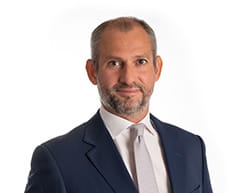According to the Global Food Security Index (GFSI), Singapore, Ireland, the United Kingdom, the United States of America, the Netherlands and Australia are the most food secure countries in the world, with the United Arab Emirates (UAE) ranked number 31.
Despite importing approximately 80-90% of its food supplies, the UAE is considered "food secure" mainly due to its political and economic stability and its capacity to purchase food on the international market. Nevertheless, as the UAE is a desert country with limited supply of arable land and water, the UAE government has since 2007 recognised that it remains subject to a number of food security challenges that must be prioritised. As such, in recent years we have seen the UAE government focus on the need to become a long-term food secure and self-sufficient country. A recent example of this is the appointment of HE Mariam bint Mohammed Saeed Hareb Al Mehairi as the Minister of State for Food and Security in Dubai following the Cabinet reshuffle of October 2017.
What is food security?
Food security has been defined by the Food and Agriculture Organization of the United Nations (FOA) as "all people, at all times, have physical, social, and economic access to sufficient, safe and nutritious food that meets their food preferences and dietary needs for an active and healthy life". This is also in line with the definition provided by the Committee on World Food Security (CFS) which regards food security as the access, availability, use and stability of a nation's food system.
There are several dynamics involved in defining whether a country is food secure such as the way in which a nation produces, distributes, utilizes, and consumes food; as well as, the means by which it disposes of food waste. Almost every aspect of a country’s economy and politics impacts this interrelated system.
Given the above, the UAE can generally be regarded as food secure, if it fulfils the following measures:
- Food availability: having sufficient quantities of quality food on a constant basis, supplied through imports and/or domestic production.
- Food access: having sufficient resources, a social, economic and politically permitting environment to acquire quality food.
- Food utilization: for this requirement to be fulfilled, food availability and access must result in a healthy diet, sanitary and safe food, and overall well-being.
- Food stability: being able to provide food at all times and having resilience against unforeseen events and risks on the national or individual levels.
The factors affecting food security can generally be classified as follows: (i) those factors that affect the production and supplementation of food; and, (ii) those that affect a country’s ability to respond to shocks, disasters, emergencies and crises etc. Although there are varying means to achieve food security, all must include strategies that involve both classes.
The GFSI ranks the UAE at number 50 in terms of its food availability, at number 43 in terms of its food quality and safety, and at number 4 in terms of its food affordability.
UAE food security challenges
The most prominent challenge faced by the UAE is its climate, which has for some time had a negative impact on its domestic production abilities.
Being a desert country, the UAE experiences harsh weather conditions and sees, on average, rainfall only five times a year, which has led to a lack of arable land and heavy dependence on desalination, making agricultural production difficult. The overall effect of this is that the UAE has become heavily reliant on food importation, for which it has productive logistics infrastructure.
The UAE has been successfully diversifying its economy and although the UAE has the most diversified economy in the GCC, its economy remains extremely reliant on petroleum (oil) which funds its (expensive) food imports, subjecting the UAE to relatively high exposure to trade fluctuations between oil and food. This means any disturbances (such as emergencies, shocks, crisis etc.) to the UAE's economy would directly affect its food security; in particular, its food's affordability and availability. All of this is intensified by the rising food demands, diversification and globalisation.
Given the above, the UAE remains subject to a number of risks including, inter alia:
- Heavy reliance on regional and global markets.
- Growing diverse population with increasing food demands and consumption leading to higher pressure on food and water resources.
- Lack of data for research and planning as well as a lack of STEM (science, technology, engineering and mathematics) workforce and economic diversification.
- Fluctuating fuel prices.
By way of comparison, Singapore is considered the most food secure country in the world despite having limited arable land and being heavily reliant on imports with lacking domestic agricultural production. As such, Singapore presents a stimulating comparison to the UAE.
Although a detailed comparison between the UAE's and Singapore's food security policies and strategies is outside the ambit of this article, it seems that, the key difference between the two countries is that the UAE currently lacks an integrated and comprehensive food security strategy and is subject to high import tariffs, whereas Singapore prioritises its food resilience as its the main food security strategy focusing on improving its restricted agricultural sectors, imports diversification, sustainable growth and mitigating pressures to its food security system.
UAE food security opportunities
Despite its challenges and the potential risks it is exposed to, the UAE has recognised the opportunities open to it which include, inter alia:
- Economic diversification and large export markets including access to MENA markets and global labour markets.
- Presence of food safety net programmes – imposing standards and regulations for maintaining the safety and quality of food and raising trust in the UAE food system.
- Agriculture finance – giving farmers' access to financing and allowing them to exploit a well-funded public sector.
- Agricultural infrastructure – such as increased use of the organic food certification scheme and the use of agriculture hydroponics which relies on nutrient-rich water to grow plants with the use of little or no soil.
- Rising innovation and entrepreneurship sector.
The UAE has therefore begun to focus on its strengths and the opportunities available to it to overcome its challenges in this sector. In addition to the appointment of the Minister of State for Food and Security in Dubai whose responsibilities include achieving economic diversification and overseeing the development of the necessary infrastructure to achieve food security objectives in line with “UAE Centennial 2071”, we have seen in the recent years that the UAE has made significant investments to its food sector such as investments in agricultural high technologies (for example high technology farming methods such as hydroponics and soilless farming, dry agro, and high technology commercial greenhouses etc.).
The UAE government has also, amongst other things:
- Established the Food Security Centre in 2010 to develop and implement food security strategies and policies. Its aim is to ensure that all UAE citizens and residents have access to healthy, nutritious and safe food in all circumstances including shock situations.
- Established Abu Dhabi Farmers' Services Centre responsible for agriculture, food safety and food security affairs in the Emirate of Abu Dhabi, where it is concerned with the sustainable agricultural and food development sector to achieve food security and enhance biosecurity that maintains animal and plant health. It also trains on agricultural best practice.
- Established the Agricultural Innovation Centre in Sharjah in 2015 to create an agricultural industry which is sustainable within its available resources.
- Implemented food security policies such as the National Policy for Food and Agriculture in 2015 which was prepared with the support of the FOA. This policy sets directions for the coming years paying particular attention to developing the agricultural sector through enhanced efficiency, productivity and sustainability.
- Launched the UAE Food Bank in 2017, and also the Dubai Zero Waste (DOW) programme.
- Encouraged public private partnerships to support government efforts.
The UAE's investments in its domestic food production industries, research and development, policies and strategies, and technology are all fundamentally aligned to improving its food security. However, there remain large investment opportunities where the UAE can exploit its capital and strategic location as a major financial hub to invite further research and development in this area.
We have also seen clients looking to make acquisitions to gain greater control of their supply line and to minimise the risk of food fraud. A recent example of this is the Dubai-based online marketplace Seafood Souq, which is aiming to expand from Dubai to the rest of the UAE and GCC by 2020 in an effort to tackle seafood fraud, product mislabelling and high pricing. This is by connecting international sellers with regional buyers through a traceable supply chain in partnership with Emirates SkyCargo.
How we can help
We have advised, and are currently advising, on a number of UAE food security investments which include:
- Advising a family business in relation to a joint venture in respect of a UAE based hydroponic system.
- Advising on the acquisition of a UAE based fruit farm.
- Advising on the acquisition of a UAE based vegetable farm.
- Advised on the acquisition of a majority stake in a UAE-based food processing and distribution company.
- Advising a family business in relation to its investment in an oyster farm in the UAE.
If you have any questions regarding food security, or the way in which we can help your business, please do get in touch.


